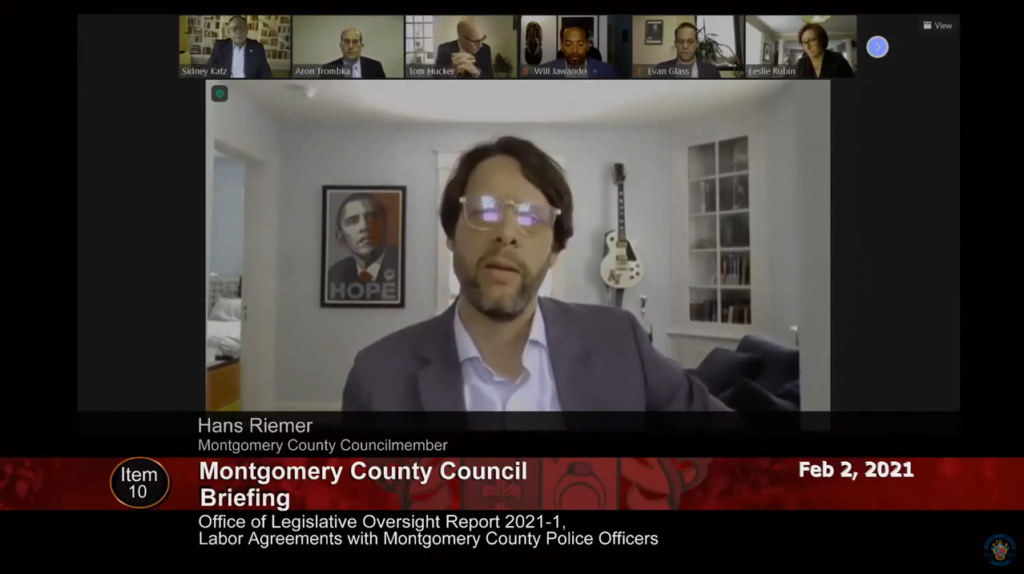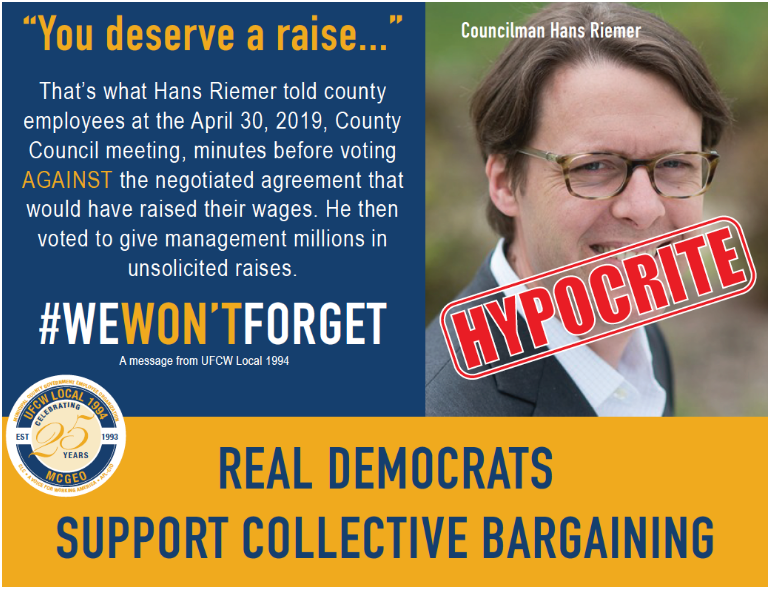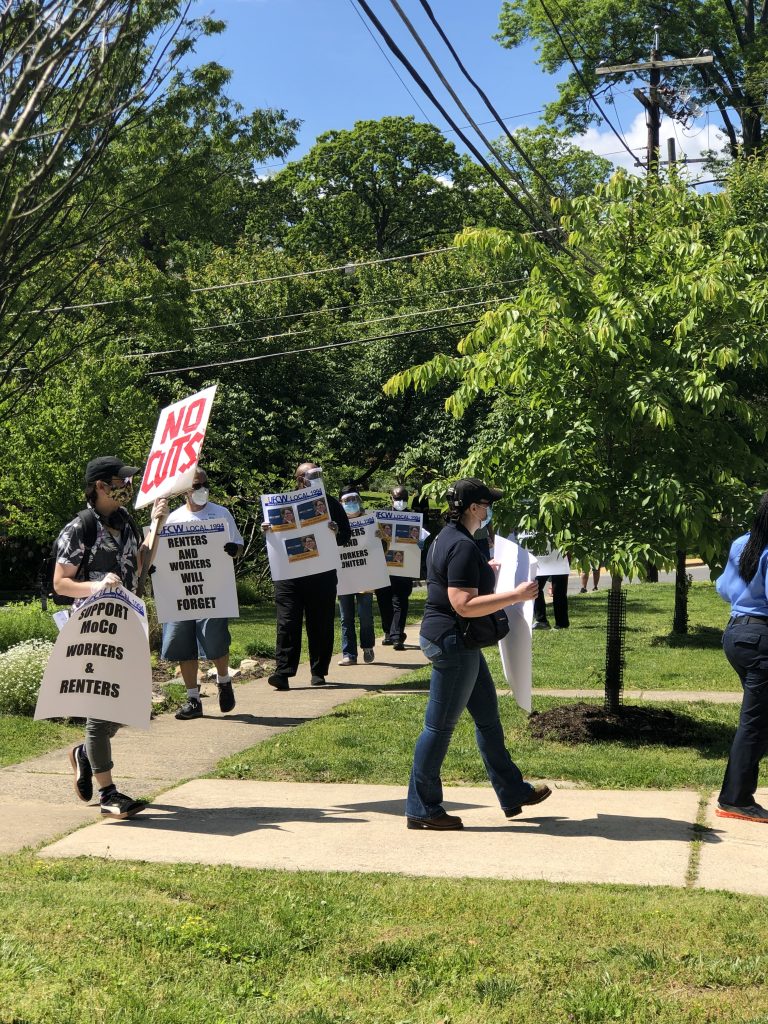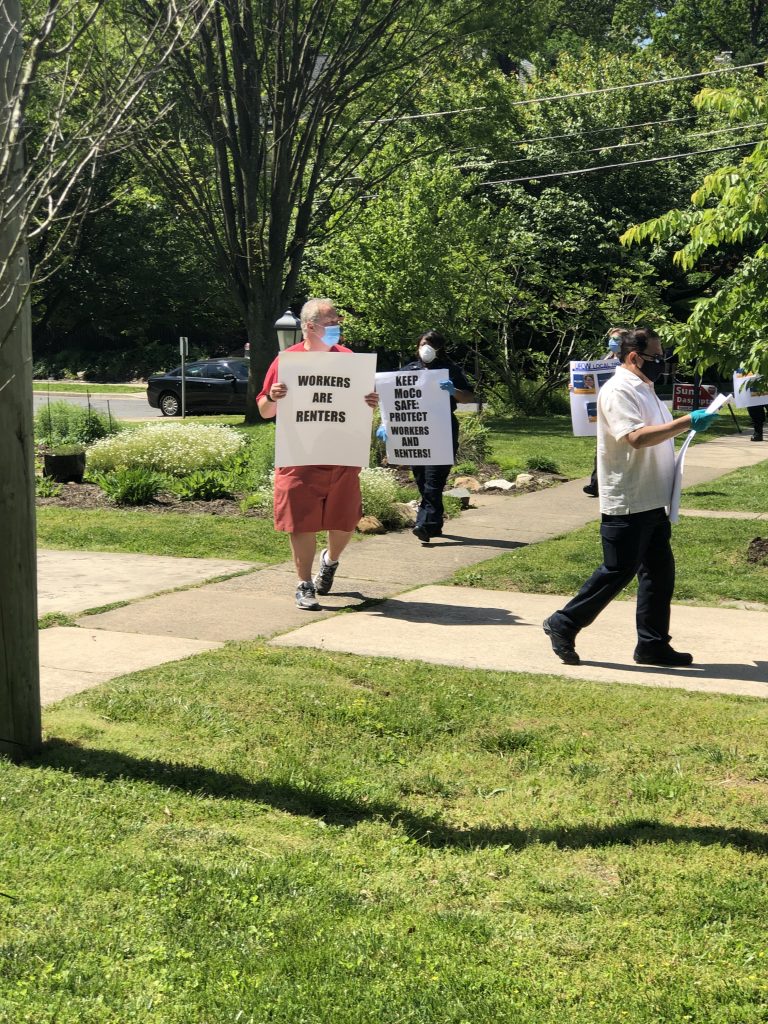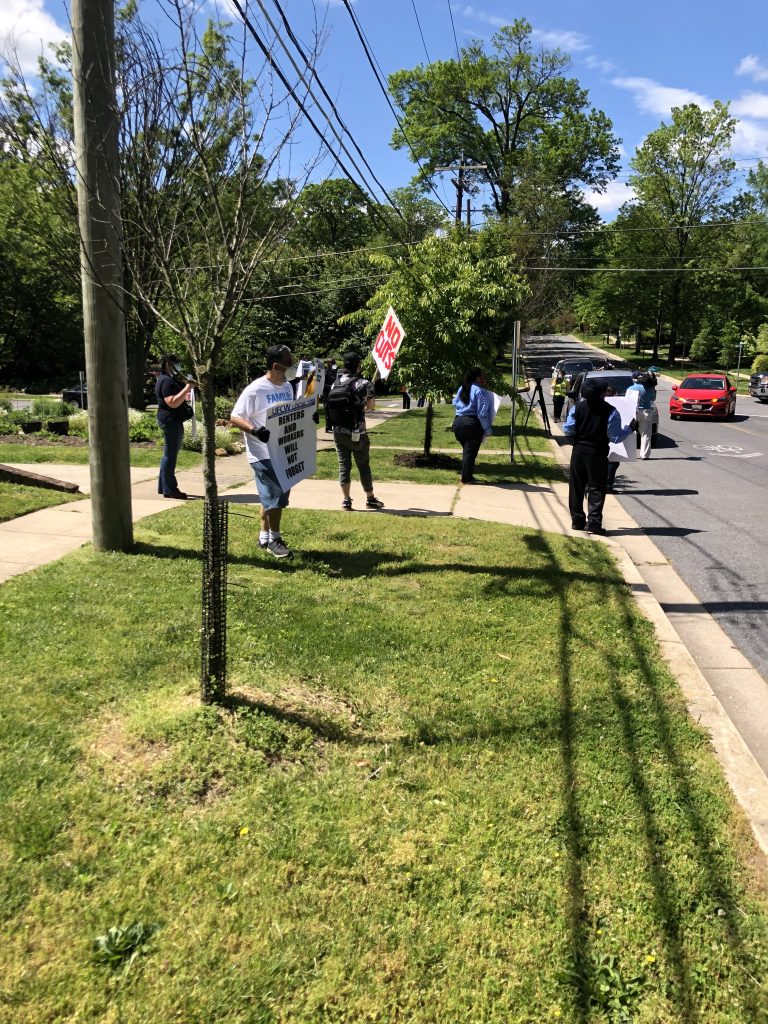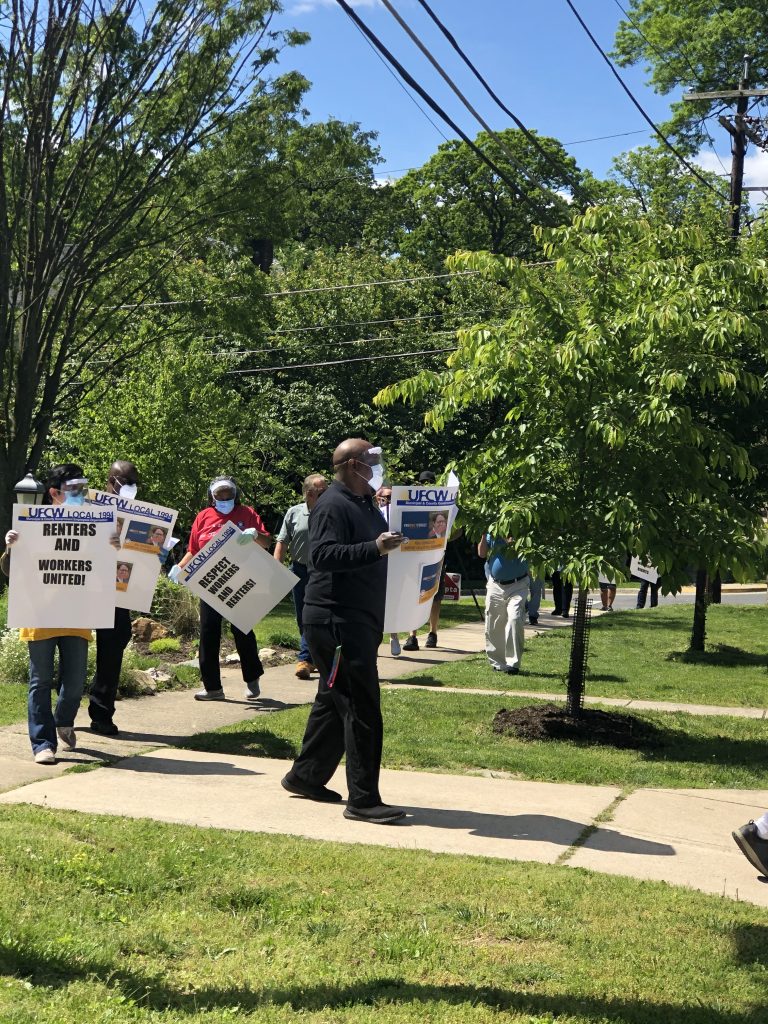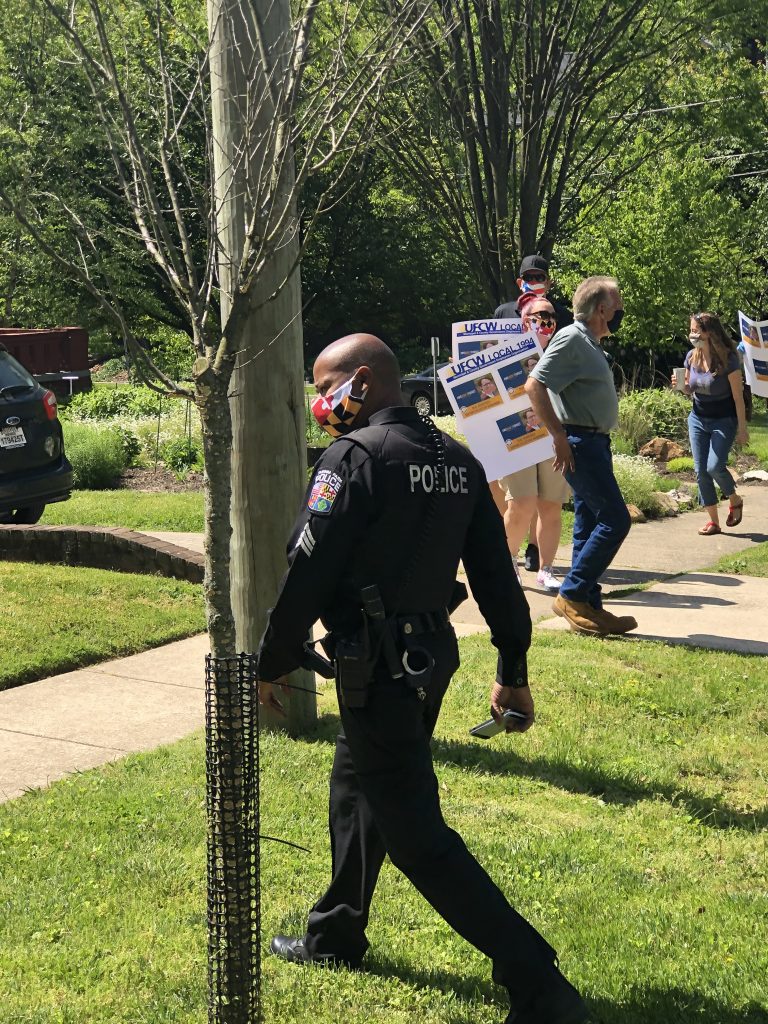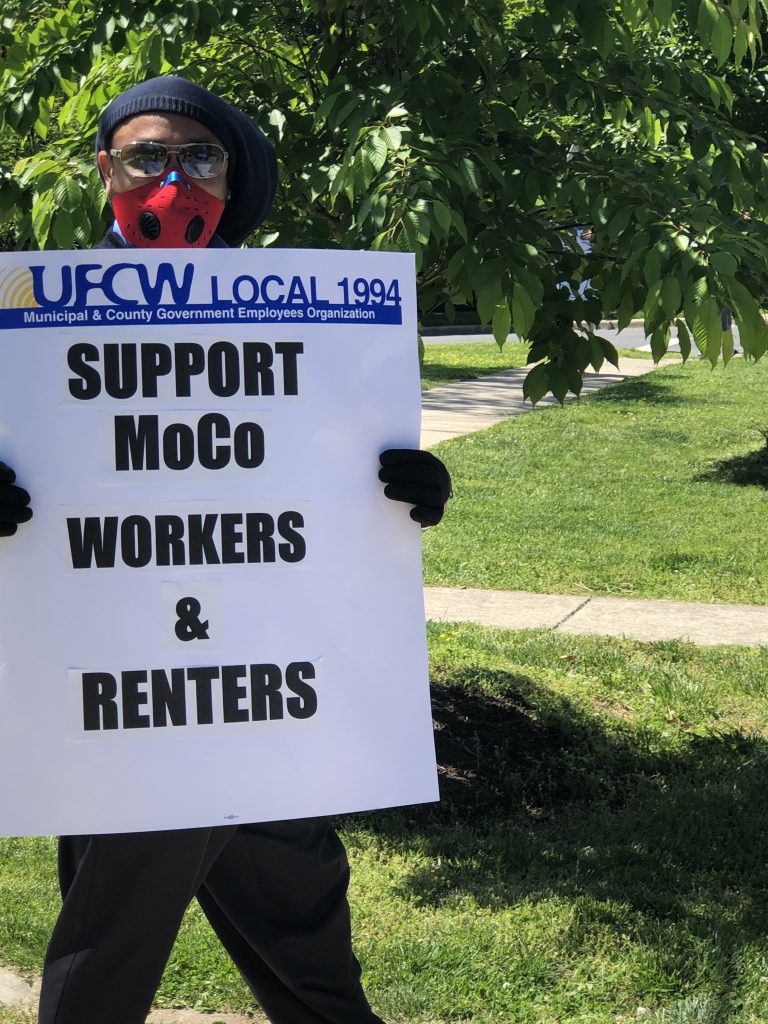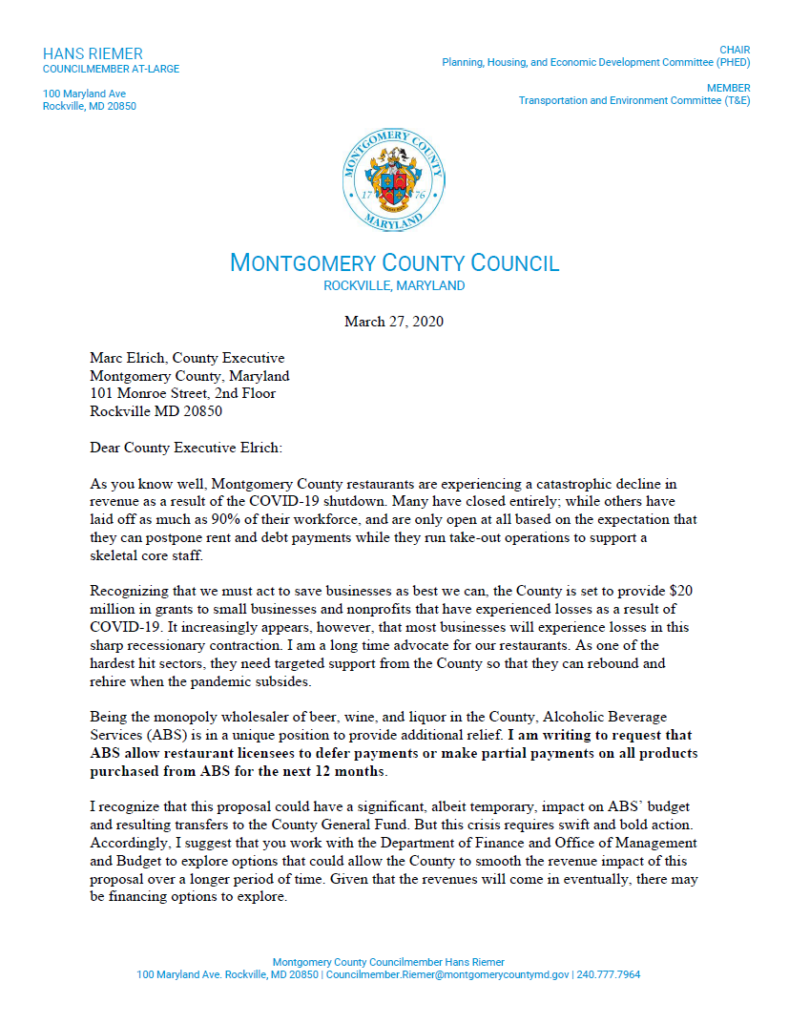By Adam Pagnucco.
The extent to which solar panels should be allowed in the agricultural reserve was a big issue this week. Council Member Hans Riemer, one of the lead sponsors of legislation to do so, and County Executive Marc Elrich, who favors less capacity than Riemer, both issued statements this week which we reprint below. For background, you can refer to Bethesda Beat’s account of the county council’s decision on the issue, my column on its context and Delegate Kumar Barve’s letter to the council about the legislation.
First, let’s consider what Riemer had to say in his blast email of February 24.
*****
Why I Voted No
When I introduced the “farm + solar” zoning change with Council President Tom Hucker back in January 2020, my goal was to build a cornerstone of Montgomery County’s climate action policy.
By allowing less than 2% of the land in the County zoned “Agricultural Reserve” (which is itself one-third of all land in the County) to be used for privately funded community solar projects, the proposal would have generated enough clean energy to power more than 50,000 homes, while continuing agricultural practices on that land.
Regrettably, with opposition fueled by the County Executive, a majority of Councilmembers adopted two amendments to ZTA 20-01 that are so restrictive that the proposal may result in very little if any solar.
As a result, I voted “no,” because I am concerned that rather than a small step forward for Montgomery County, it may be a large step backward for Maryland. Consider these words from Chesapeake Climate Action Network, which along with the Sierra Club and Poolesville Green strongly supported the original plan:
Clean energy has to go somewhere. If liberal Montgomery County can’t reach a sensible compromise policy, imagine the push back from Republican county and state elected leaders who think climate change is a hoax anyway.
We should be leading. Our county has adopted climate goals. We declared a “climate emergency.” We have conducted studies on how to reduce our carbon footprint. At the end of the day though, the only way to make a difference is to make policy changes, and changes will require disruption to the status quo.
Yes, many incumbent farmers and preservationists were opposed, due to impacts on their business models (shifting from commodity crops to agrivoltaics, solar grazing, or pollinator-friendly habitats on that portion of land) or a perceived threat that allowing solar is a step to allowing residential or other development (just a fear, not a reality).
There are reasonable questions about how we transition to a clean energy economy. One idea I offered was to use tax revenue from solar arrays to support additional agricultural preservation, grants to help small farmers purchase or lease land, and funds to support agrivoltaic and solar grazing. Nevertheless, under this plan, farming would continue, the Reserve would endure. Frankly not much would seem all that different but we would have made a huge impact on our carbon emissions.
Other choices that we have before us are far more costly, either financially to taxpayers or to businesses or homeowners. This is one of a very few ideas that does not actually require County funds — in fact it would generate millions in new county revenue that could be devoted to the climate agenda while creating new clean energy and solar grazing jobs.
Some of the important points to remember about this proposal include:
- Solar fields would have been limited each to 2MW in power generation, about 10-15 acres per property maximum (in contrast to portrayals of “industrial solar”)
- Total acreage allowed would have been limited to 1,800 out of the 100,000+ acre reserve, which itself is one-third of all land in the County
- Grazing sheep on pollinator-friendly plants beneath the arrays was encouraged and could have been incentivized with new tax revenue from the solar arrays
- Solar grazing and agrivoltaics would increase local food production in the Reserve — less than 1% of the land in the Agricultural Reserve today is farmed for fruits and vegetables destined for local farmers markets
- Rooftop and parking lot solar, while important, is significantly more expensive than ground-mounted or terrestrial solar fields, which is why you don’t see enough of it
- There is nothing more important to saving the climate than creating cheap clean energy
- By only allowing “community solar” installations on the land, energy companies taking advantage of the program would be required to offer discounted energy subscriptions to low income residents
The Council majority acknowledged that they are not sure if their proposal will result in new solar projects and that we should return to the topic in two years to evaluate progress.
In that respect, while I am disappointed in the final vote, I am also grateful that we have now opened up the possibility of farms providing community solar (which was previously entirely prohibited; now is mostly prohibited) and I am committed to growing that potential in the future as a necessary public benefit from our Agricultural Reserve.
In the meantime, while it is clear that the original proposal has overwhelming support from voters, we need to build grassroots support, and in particular, we need to educate residents about the primacy of clean energy and the social justice value of community solar.
To be continued.
Sincerely,
Hans
*****
Now let’s consider Elrich’s statement, issued on February 25.
*****
Dear Friends:
The Montgomery County Council on Tuesday voted to adopt changes to the County zoning code that will provide opportunities for locating solar collection systems in the Agricultural Reserve. I extend my thanks to the seven Councilmembers who found common ground that allows for community solar projects while protecting our agricultural resources.
Zoning Text Amendment 20-01 strikes the right balance between the need for renewable energy and the equally important need to protect the Agricultural Reserve’s unique and vital contributions to local food production, clean water and carbon sequestration.
The new standards allow solar collection systems generating up to two megawatts of power as a conditional use on the lesser productive soils in the Ag Reserve. Other provisions protect streams, wetlands, steep slopes greater than 15 percent and forests.
In addition, the areas under the arrays must be used for farming or agricultural purposes. Examples include pollinator-friendly designation, agrivoltaic plantings or crops suitable for grazing farm animals. Another significant change affects property owners who install smaller solar systems to serve their individual energy needs, increasing the amount of on-site energy they can produce from 120 to 200 percent.
The County Council also mandated a formal review process to assess the outcomes of these changes in two years. This will give us the opportunity to observe whether and how this experiment will work, especially regarding the emerging field of agrivoltaics, which focuses on the co-development of land for both solar power and agriculture.
In the meantime, my administration continues to prioritize increased solar energy production in innovative ways. For example, we are currently planning the installation of a six-megawatt array on the County-owned site of an old landfill. We also are looking at ways to incentivize solar projects on existing parking lots and buildings elsewhere throughout the County. These types of projects are essential to our efforts to address climate change through clean energy solutions.
I deeply appreciate the work of all those involved in this year-long review, most especially members of, and advocates for, the farming community and Executive Department staff members. The Ag Reserve, established by prescient County leaders more than 40 years ago, is recognized as a national model of farmland and open space preservation. Its importance and significance grow with each passing year as we witness the effects of climate change on our food and water supplies. The legislation adopted by County Council embodies the need for protecting this resource while allowing us to see whether agriculture and solar systems can co-exist in a mutually beneficial way in Montgomery County.
Marc Elrich
County Executive

